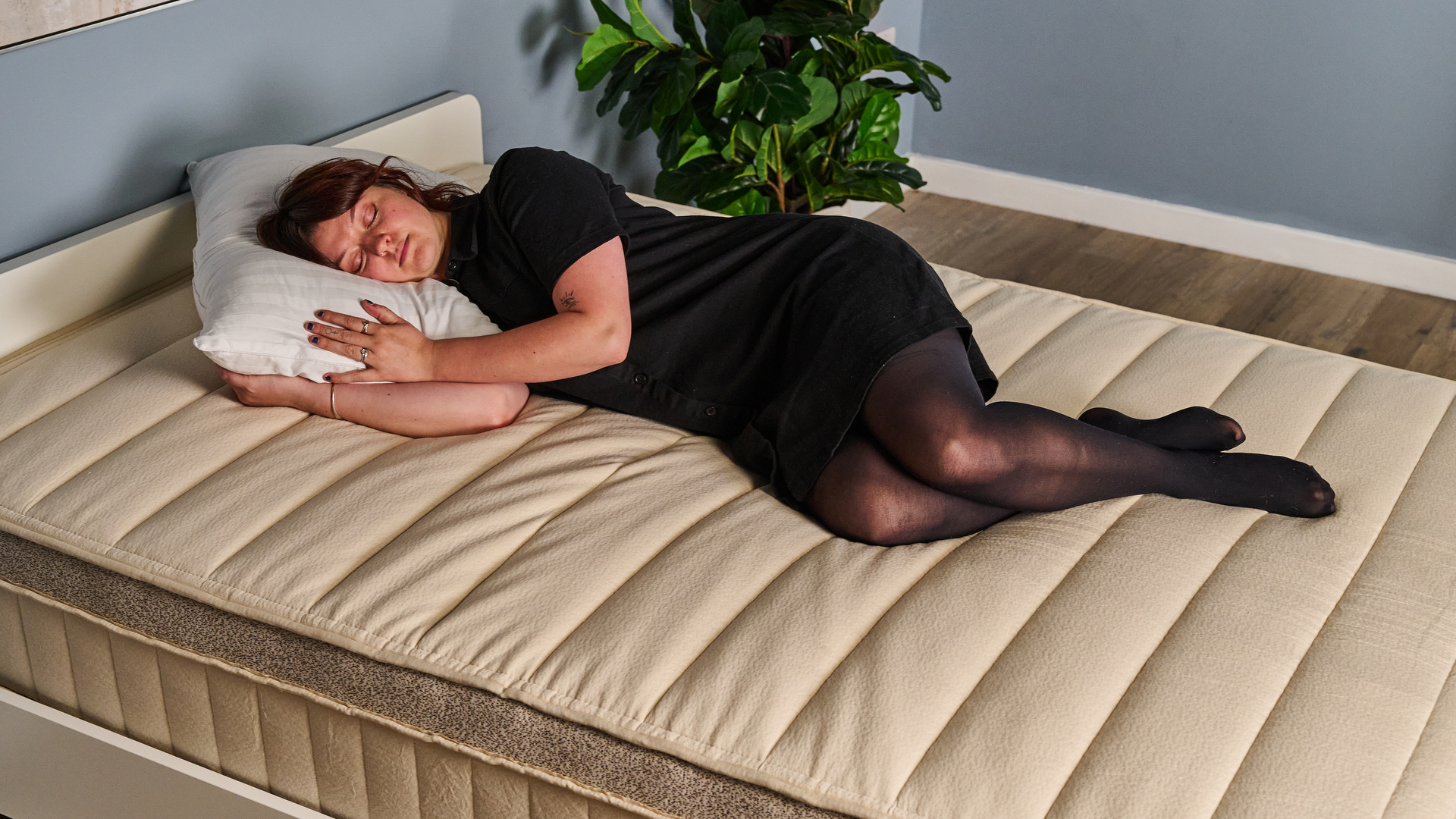Snoring can be the loud noise that ruins sleep, starts arguments, and sends partners to the spare room.
Whether you’re the snorer or the one lying awake beside them, snoring is more than just an irritating habit. The condition affects around 40% of men and 30% of women, yet many of us don’t fully understand why it happens or what we can do to fix it.
In this feature, we’ll break down the science behind snoring: what exactly causes that awful sound, the lifestyle and health factors that can make it worse, and what you can do to stop it.
From simple sleep hacks to lifestyle changes, we’ve spoken to the experts about snoring and how to enjoy a quieter, more restful night.
What is snoring?
We’ve probably all heard a partner or family member snore, and it can go from a tiny sound to an audible disruptive noise that keeps us awake at night.
But why does snoring happen? “Snoring is the sound of turbulent airflow caused by relaxed soft tissues in the upper airway vibrating when a person is asleep,” says Sleep expert Dr Ruchir Patel.
“Snoring is suggestive of excess, relaxed soft tissue vibrating as a person is breathing but could also be reflective of partial obstruction,” he adds.
Up to 50% of all adults snore occasionally, while for half of them it could be a sign of a sleep disorder, such as obstructive sleep apnea.
What are the symptoms of snoring?
Most of us know the main symptom of snoring – a loud obstructive sound. However, you may experience some other symptoms if you snore.
“Someone that is a serial snorer may also suffer from headaches throughout the day, daytime fatigue, find it difficult to concentrate or even just a bad quality sleep from where they’ve been waking themselves up,” explains Dr Deborah Lee, a Consultant Clinical Psychologist.
Dr Patel adds you may also experience the following:
- Loud, disruptive sounds
- Dry mouth
- Sore throat
- Possible cessation of breathing
- Snorting
- Waking oneself secondary to their own snoring, i.e., disrupted sleep
- Morning headaches
- Next day fatigue
What causes snoring?
Some of us are more likely to snore than others, and it can be genetic, with studies on twins and families demonstrating the existence of a genetic predisposition to habitual snoring. However lifestyle factors and underlying conditions are normally the main causes.
1. Alcohol intake and smoking
Alcohol has a huge impact on sleep. You may think the odd glass of wine can help you relax at night, but it can have an effect on how it relaxes your muscles in the throat and airways too.

This can “lead to airway collapse and increased vibration of soft tissues—especially when consumed close to bedtime,” explains sleep expert Dr Leah Kaylor.
“Smoking, on the other hand, irritates and inflames the lining of the airway, increasing congestion and narrowing the breathing passages,” she says.
“This inflammation makes it more likely that the airway will vibrate and produce snoring sounds during sleep.”
2. Weight
Studies show that snoring is associated with those who are overweight, and this can also be a risk factor for developing OSA too. So, why can your weight affect snoring?
“If you gain weight around the neck, this will narrow the airway and increase resistance during your nighttime breathing,” Dr Lee says.
“You may even find it more difficult to breathe in the day too. Losing weight is often a first recommendation if you want to decrease how often you snore,” she adds.
3. Sleeping position

Most of us have a favourite sleep position, but sleeping on your back means the tongue and soft tissues in the throat can collapse backward, narrowing the airway and possibly increasing snoring.
So, what’s the solution? Side-sleeping helps keep the airway open — try using a body pillow if you naturally roll on to your back as you sleep.
Also, ensure you have the correct mattress and pillow to support your sleeping position. Check out the best mattresses for side sleepers for maximum comfort.
4. Health conditions
The main medical conditions, which could cause your snoring, are obstructive and central sleep apnea.
“This is a sleep disorder where breathing stops and starts throughout the night and is caused by throat muscles being over-relaxed and blocking the airway to breathe properly,” explains Dr Lee.

“Other conditions may include enlarged tonsillitis, which can be fixed usually with antibiotics, or even just a common cold,” she adds.
5. Medications
Dr Lee explains that any sort of muscle relaxant medication can lead to snoring as “the whole point of them is to relax your muscles, particularly throat muscles.”
“Some medications may also affect your respiratory drive or cause weight gain, which can make your snoring worse,” she explains.
Speak to your doctor if you’re worried about the side effects of medication you take.

Is snoring normal and are there any risks?
Occasional snoring is common and quite normal, especially after a long stressful day, if you’ve had few alcoholic drinks, you’ve got a blocked up nose or when sleeping on your back.
Dr Patel adds that for some, snoring could be a sign of another, more severe condition though.
“Nearly 3 out of 4 people who snore to any degree, regardless of age, gender, BMI, and/or ethnicity, have Obstructive Sleep Apnea (OSA).”
If you think this might be the case, he recommends getting evaluated for OSA by seeing a sleep specialist and undergoing a sleep study.
How to stop snoring
Ready to stop snoring? Here’s three tips on how to stop snoring almost immediately.
1. Change your sleeping position
“There is evidence that changing your sleeping position can have a positive impact on snoring.” explains Dr Patel.
In fact, studies have found that those who sleep on their side experience “better quality sleep, with reduced snoring and turning throughout the night, than those who sleep on their backs.”
2. Open up your airways

Breathe Right strips can help reduce snoring by improving airflow through the nose. The strips, available from most pharmacies, stick to the outside of the nose and open the nasal passages, making it easier to breathe.
By reducing nasal congestion or narrowing, they help prevent mouth breathing—one of the common causes of snoring.
While they may not work for everyone, especially if the snoring originates in the throat, they can be an effective option for people whose snoring is triggered by blocked or stuffy nose.
3. Lifestyle changes
Simple lifestyle changes can have a big effect on your snoring. Try cutting down or not drinking alcohol or smoking for a week to see if your symptoms get better, or disappear completely.
Maintaining a healthy weight is another key factor; excess body fat, particularly around the neck, can put pressure on the airway.
If you’re not sure where to start, consult your doctor on how you can start to eat healthier and what weight you should be aiming for.










